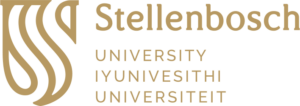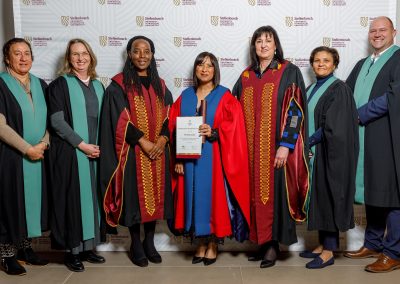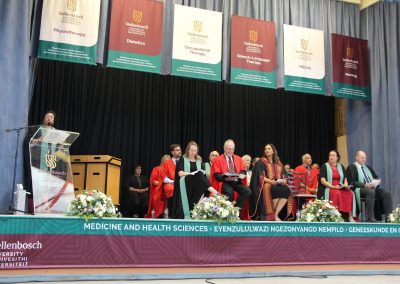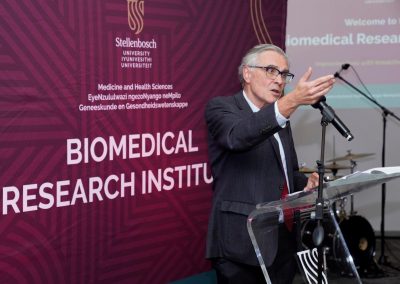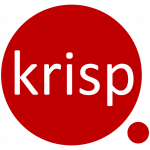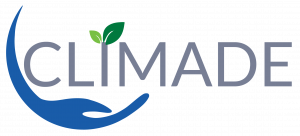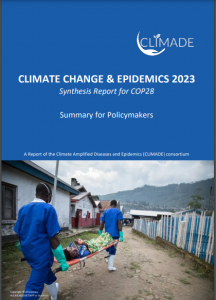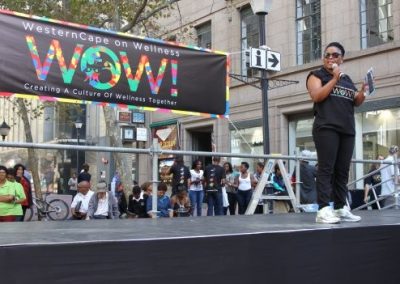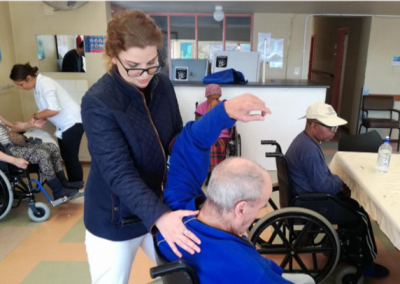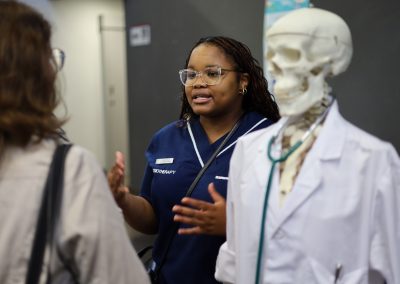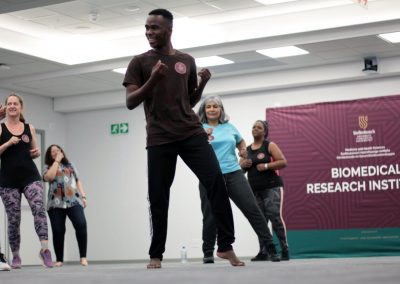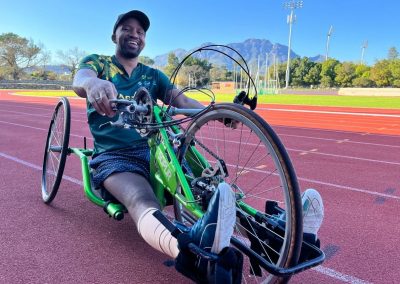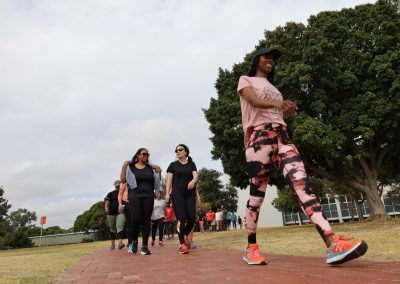Sustainable Development
at STELLENBOSCH UNIVERSITY
Sustainability contributions
SDG 3: Good Health and Well-being
SDG 3
Good Health and Well-being
The recent Covid-19 pandemic has highlighted how important it is for all people to access quality healthcare. The pandemic has also caused a big disruption to the availability of healthcare and the distribution of medication. Many health-related metrics have greatly improved in South Africa but there is still much that can be done.
Universities can improve the state of health in surrounding communities by educating people and by offering health and family planning services. Universities can also improve the physical and mental health of students and employees via on-campus health facilities. SDG 3 links to SDG 2 (Zero Hunger), stronger communities (SDG 11) and strong institutions (SDG 16) and is linked to the Agenda 2063 Goal 3: Healthy and well-nourished citizens.
A range of programmes at Stellenbosch University contribute towards SDG 3: Good Health and Well-being and AU Goal 3: Healthy and well-nourished citizens. For more information about our community interaction activities, see the Division of Social Impact’s Platform for SDG 3.

Goal 3
Healthy and well-nourished citizens
The Faculty of Medicine and Health Sciences (FMHS) ensures its academic and service activities are evidence-based and internationally competitive yet locally relevant. Aligned with the South African National Development Plan (2030), the Faculty prioritises social accountability by directing education, research, and service efforts toward addressing the country’s key health concerns, extending this focus to the broader African continent and beyond. This research-rich environment fosters extensive collaborations across the globe, in addition to national and continental partnerships.
SU’s contribution to training Health Professionals
The FMHS educates future professionals who are engaged citizens and thought leaders. With 15 departments, 7 priority research areas and exceptional teaching programs, the Faculty graduated 1 148 professionals in 2023, approximately 13% (of the total of 8891). Every year the Faculty awards more than 80 Masters and 50 PhD degrees. Graduates are prepared to promote health, prevent disease, and provide healthcare services, empowering communities to engage in positive social and economic activities in South Africa. Throughout 2023, the Faculty leveraged its strengths in teaching and research to significantly impact the lives of medicine and health science on the continent. The primary health challenges facing Africa and the world are addressed using a research agenda shaped by strategic focus areas. A testimony to our proud research tradition is the annual faculty output of hundreds of refereed scientific articles and papers delivered in South Africa and abroad.
Collaborations: Partnerships for Progress
The FMHS has a longstanding tradition of cooperation and collaboration in the field, and faculty members, staff, and students are encouraged to design and implement initiatives that tackle these health priorities locally, regionally, and globally.
The Centre for Epidemic Response and Innovation
The Centre for Epidemic Response and Innovation (CERI) is based at the FMHS and School for Data Science and Computational Thinking, with laboratories situated at the cutting-edge Biomedical Research Institute (BMRI) facilities. The Centre has a vision to identify and control pandemics in Africa using its expertise in genomics to identify new variants of pathogens and advance science to improve prevention, treatment and vaccines in Africa. CERI has a strong collaborative relationship with the KwaZulu-Natal Research Innovation and Sequencing Platform (KRISP) at the University of KwaZulu-Natal, and the long-term aim is to merge the two entities to create a multi-institutional institute with different campuses in South Africa – and potentially in Africa.
Climate Amplified Diseases and Epidemic
CERI contributes to CLIMADE (Climate Amplified Diseases and Epidemics), an international consortium with founding partners from SU, FioCruz, Brazil, and the University of Sydney, Australia. Together with a steering committee, they lead the implementation of the global consortium in collaboration with the Africa CDC and Pan-American Health Organization. The overarching long-term goal of CLIMADE is to predict, track, and control diseases and epidemics that are amplified by human-caused climate change in the most affected countries in the world. CLIMADE leverages its expertise to create a robust disease surveillance system for the Global South, identifying pathogens quickly and controlling outbreaks before they become epidemics – and pandemics before they become pandemics.
The South African Centre for Epidemiological Modelling and Analysis
The South African Centre for Epidemiological Modelling and Analysis (SACEMA) at SU has a mission to improve health in Africa, and particularly South Africa, through epidemiological modelling and analysis. Through mathematics, biology, physics, statistics, and epidemiology, SACEMA researchers bridge disciplines to understand disease dynamics and improve real-world outcomes. They work with a wide variety of health issues, including HIV, TB, vaccine-preventable diseases, emerging infections, cancer, and diabetes. Their collaborators include notable national institutions like Desmond Tutu TB Centre, and the South African COVID-19 Modelling Consortium. Internationally they work with Doctors without Borders, the UK Health Protection Agency, the University of California (San Francisco) and the US Blood Systems Research Institute, San Francisco.
Contributions to Policy
The Climate Change and Epidemics Synthesis Report 2023 and Summary for Policymakers was delivered at COP28 by the WHO AFRO COP28 delegation, the Ministry of Health of Mozambique and CERI. SACEMA researchers compiled the report to emphasise the urgent need for preparedness against epidemics exacerbated by climate change, focusing on building health resilience in vulnerable, underserved communities in the Global South.
Collaborations for research and training
SU and its FMHS aim to revolutionise healthcare and research with a groundbreaking partnership with PET Labs Pharmaceuticals. This collaboration was launched in November 2023 and is funded by the Bill and Melinda Gates Foundation to establish a cutting-edge cyclotron facility — a first for the Western Cape. It produces vital radiopharmaceuticals for diagnosis and research and further strengthens SU’s position as a leader in nuclear medicine, addressing the critical shortage of nuclear medicine professionals in South Africa. While supporting enhanced patient care and diagnostic capabilities, the facility will also accelerate research progress in infectious diseases and oncology.
Health Services in our communities
SDG 3
Good Health and Well-being
The Stellenbosch University FMHS is based at the Tygerberg Hospital, a tertiary hospital located between Stellenbosch and Cape Town. Opened in 1976, it is the largest hospital in the Western Cape Province and the second largest hospital in South Africa. The hospital offers expert care by specialist medical practitioners who often hold a dual appointment to also teach and do research for the Faculty. In addition to SU’s intrinsic involvement in the clinical services offered at the hospital, faculty, staff, and students also provide clinical services at 25 other governmental health facilities across the province. The clinical rotations for undergraduate students in Medicine, Human Nutrition, Speech and Language Therapy, Occupational Therapy and Physiotherapy are managed through the Stellenbosch University Logistics for the Clinical (SUNLOC) Training Platform.
Social impact through community interactions
The FMHS collaborates with various local, national, and international health institutions to offer interventions to the communities we serve to improve general health outcomes for nutrition and public health. The FMHS released a comprehensive Social Impact Report for 2019 – 2023, highlighting various projects aligned with the SDGs for social impact through community interaction and research. Dr Therese Fish, FMHS Vice Dean (Clinical Services and Social Impact), explains: “We encourage faculty members, support staff, and students to develop and participate in activities that address priority health issues. This includes volunteerism, teaching activities, research projects, and service-related programmes focused on South Africa first, then expanding to continental and global impact.”
The Ukwanda Centre for Rural Health
In partnership with the Cape Winelands District Health programme, the Ukwanda Centre for Rural Health (established 2002) provides medical services to the larger Worcester area. Many residents of this area are under-resourced and underserved and do not have ready access to medical care. The aim of this project is to offer assistance by performing routine health assessments and assisting patients with access to medication. The rural clinic established in 2011 was the first of its kind in South Africa. In addition to medical services, the clinic now offers occupational therapy, physiotherapy, speech-language therapy, and hearing therapy. An offshoot of this project, the Ukwanda for Dietetic IV project aims to improve community nutrition through counselling, support, education, and other measures. Targeting businesses, civil society organisations, communities, and government at all levels, Ukwanda (meaning to grow) enhances community engagement, strengthens university ties, and elevates the institution’s social impact.
Co-creating a Culture of Wellness in the Western Cape
In South Africa, nearly 7 out of every 10 women and 1 in 3 men are overweight or obese, and 1 in 3 women and 1 in 5 men have hypertension. The Western Cape on Wellness (WoW!) initiative aims to co-create and sustain a culture of wellness through exercise programmes across the Western Cape to prevent and manage non-communicable diseases like obesity, diabetes, hypertension, and cardiovascular diseases. The programme promotes physical inactivity, healthy eating weight control. Working with the local Western Cape Government and civil society, SU contributes by supporting the local WoW! Cloetesville community with monitored exercise sessions, promoting healthy habits and empowering participants to maintain an active lifestyle. These kinds of initiatives strengthen community ties, reduce health disparities, and enable students and staff to engage as active, informed citizens.
The African Network for Evidence-to-Action in Disability (AfriNEAD)
AfriNEAD, a flagship initiative of the Centre for Rehabilitation Studies at the FMHS, ensures that disability research has a tangible impact on communities, positioning SU as a key hub for global disability research and advocacy. The Network seeks to influence policies and practices to improve the lives of people with disabilities in as many countries as possible in Africa. AfriNEAD collaborates with diverse groups, governments at all levels and a range of partner institutions in South Africa, Africa (including the African Disability Alliance), and further afield internationally. Since its establishment in 2007, it has produced key research on disability studies in Africa that is used to guide policy imperatives on the continent. It has hosted six conferences, three in South Africa, and one each in Zimbabwe, Malawi and Ghana. The programme has directly led to the creation of the African Journal for Disability and its achievements.
Student and staff wellness
SDG 3
Good Health and Well-being
Student and staff wellness
Institutional well-being is about creating a supportive and productive environment where people and the institution can thrive. The Institutional Committee for Staff Health and Wellbeing oversees the health and well-being of all staff and students. The Committee focuses on six key dimensions: social, physical, intellectual, emotional, spiritual, and financial well-being. In 2023, SU offered team development activities, health screenings, sports competitions, counselling services, and partnerships with external stakeholders to promote a holistic approach to health and wellbeing, addressing the physical, mental, and emotional needs of our community.
Sexual and reproductive health care services
The Stellenbosch Campus Health Services strives to cultivate a healthy campus for staff and students, offering an integrated and comprehensive service for a range of health concerns. These include general medicine Reproductive & Gender Health services, sports and exercise medicine, physiotherapy, and occupational health services at our Stellenbosch main campus. The Family Planning and Reproductive Health Unit at Tygerberg Hospital, through our FMHS, provides a reproductive health service to the community of students, staff, and general patients of the hospital. The Unit serves as a primary care facility and provides advice, counselling and contraception options for men and women.
Mental Health Services
Stellenbosch University is committed to the mental health of its students and has implemented a Students Mental Health Plan to outline their dedication to prioritising the mental health of SU students, and staff are further capacitated to support students who show signs of mental health struggles. Staff members are supported by the Staff Health and Wellbeing programme that aims to destigmatise mental health care and interventions at work. Students and staff can access the Mental Health Programme at the University’s Campus Health Services, where they can be referred to a psychiatrist or psychologist. The Centre for Student Counselling and Development at the Division of Student Affairs offers a range of counselling and mental health programmes for enrolled students at the Stellenbosch Campus for free.
Psychiatric services made accessible to Tygerberg students in need
Recognising the increasing prevalence of mental health challenges, the University has established a new partnership between the Campus Health Service and the FMHS. This collaboration provides financially disadvantaged FMHS students with access to specialised psychiatric services at the Campus Health offices on the Tygerberg campus via the Unit for Psychotherapeutic & Support Services.
Supporting active lifestyles
SDG 3
Good Health and Well-being
Supporting active lifestyles
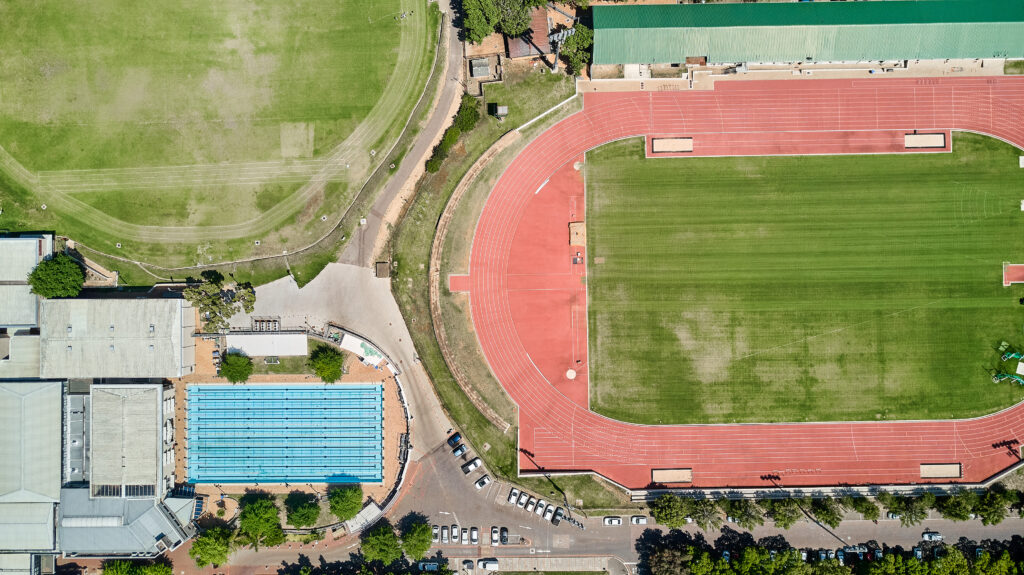 Stellenbosch University is home to the Sports Science Department within our Faculty of Medicine Health Sciences, housed at the Coetzenburg sports complex. They aim to produce graduates who are leaders in the field of sports science. The Department of Sport and Exercise Medicine offers a free injury programme for SU athletes to aid in recovery from injuries sustained during training or sporting events. Additionally, they aim to use physical activity and human resources for the advancement of the department, The SU sports facilities are available to students, personnel and the public.
Stellenbosch University is home to the Sports Science Department within our Faculty of Medicine Health Sciences, housed at the Coetzenburg sports complex. They aim to produce graduates who are leaders in the field of sports science. The Department of Sport and Exercise Medicine offers a free injury programme for SU athletes to aid in recovery from injuries sustained during training or sporting events. Additionally, they aim to use physical activity and human resources for the advancement of the department, The SU sports facilities are available to students, personnel and the public.
Cultivating a love of Sport
With 30 sports clubs, it is home to a wide range of activities for both high-performance athletes and amateurs. The Maties ParaSports team helps to train local Paralympians from South Africa who have taken part in the Paralympics over the years. The University’s sporting facilities are open to all students, staff, and the public. The first choice in the use of these facilities will go toward SU sports societies, with other applicants being able to use the facilities on an ad hoc basis. Membership at the University Gym facilities is paid for, with discounts for students, staff members and pensioners.
In 2023, the University’s Maties Sports division introduced the Campus Sport Bumper Evenings to create opportunities for students to participate in sports and support their favourite sports teams in rugby, netball, hockey, soccer, basketball, tennis, and table tennis. Altogether 106 matches were played over the three Bumper Evenings, with an average of 755 student-athletes participating per evening. The Recreation and Lifestyle Unit (RALU) runs a program for all Stellenbosch staff and students to participate in sports and exercise. RALU is a place for all students and staff not part of an official sports team to come together and enjoy themselves for free.
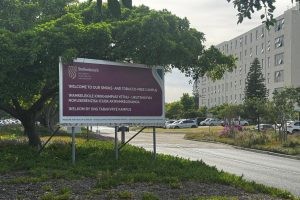 Smoke-free campus
Smoke-free campus
In 2019, the Tygerberg campus, where the FMHS is housed, became a 100% smoking-free campus (regulation) – the first to do so in South Africa. The other campuses follow the national policy for smoking in the workplace regulated by The Tobacco Products Control Amendment Act 63 of 2008 whereby an employer is obliged to protect non-smoking employees from cigarette smoke, for example, by designating smoking areas away from buildings and gathering areas. To assist students and staff to stop smoking, there are resources such as counselling and medication available to staff and students.
